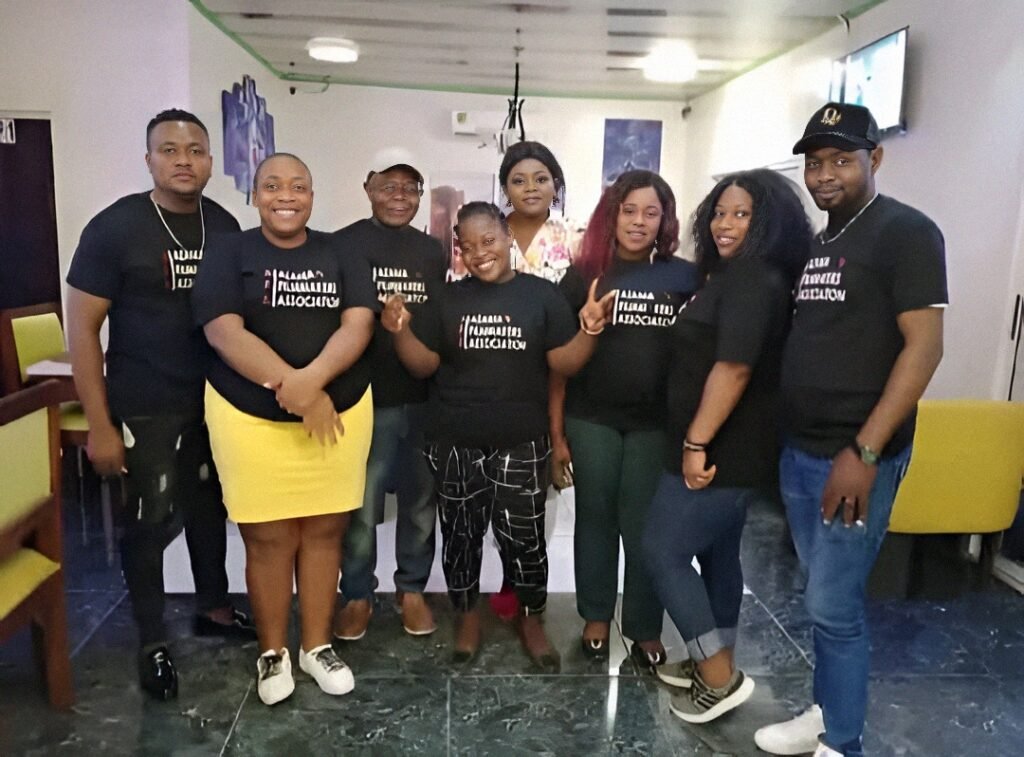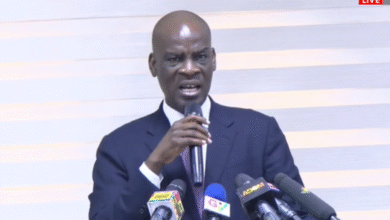NOLLYWOOD’S VOICE: Dr. Jamezany James on the Effects of Paul Biya’s Long Rule on Cameroon’s Film Industry

Renowned cultural diplomat and Nollywood figure Dr. Jamezany James has voiced concern over the re-election of Cameroon’s President Paul Biya, who has held power for more than four decades. His continued rule, Dr. James notes, raises serious questions about the future of Cameroon’s creative industries, particularly its film sector, and the broader implications for the African cinematic landscape.
Speaking as the President of the Azania Filmmakers Association (Pan-Africa), Dr. James reflected on his extensive experiences in Cameroon—spanning cities such as Douala and Yaoundé—where he has participated in cultural diplomacy missions, peace initiatives related to the Ambazonia (Anglophone) crisis, and served as a special guest at major film festivals such as Écrans Noirs and CAMIFF (Cameroon International Film Festival).
“Before my appointment as a UN Peace Ambassador, I had already witnessed the beauty and resilience of Cameroon’s creative spirit,” he stated. “However, I have also seen how political stagnation and repression threaten to silence that creativity.”
 Dr. Jamezany James with Juliet B, a celebrated Cameroonian actress, producer, and photographer
Dr. Jamezany James with Juliet B, a celebrated Cameroonian actress, producer, and photographer
Concerns for the Film Industry
- Stifled Creativity:
Under Biya’s prolonged rule, Cameroon has faced allegations of political repression and media censorship. Such an environment discourages filmmakers from exploring bold or politically sensitive themes, leading to a decline in artistic innovation and diversity of storytelling. - Lack of Investment:
Economic instability and entrenched corruption have weakened investor confidence, limiting financial support for film production, distribution, and promotion. This lack of resources constrains the growth and global competitiveness of Cameroon’s film sector. - Brain Drain:
Many of Cameroon’s most talented filmmakers, actors, and creatives have sought opportunities abroad, particularly in Nigeria’s Nollywood, where they contribute immensely but at the cost of Cameroon’s own cinematic identity and development.
 Nigeria’s Dr. Jamezany James, Kenya’s legendary actor Raymond Ofula, and Nigeria’s Dr. Ali Nuhu (Managing Director, Nigerian Film Corporation)
Nigeria’s Dr. Jamezany James, Kenya’s legendary actor Raymond Ofula, and Nigeria’s Dr. Ali Nuhu (Managing Director, Nigerian Film Corporation)
Impact on the African Film Industry
- Regional Instability:
Political uncertainty in Cameroon risks disrupting cross-border collaboration and regional partnerships, which are vital for the growth of Africa’s creative economy. - Limited Opportunities:
A stagnant Cameroonian industry translates into fewer platforms, grants, and networking opportunities for local and regional filmmakers—particularly for those seeking visibility within Central Africa. - Cultural Homogenization:
The dominance of controlled narratives can erode the diversity of African storytelling, creating a narrow representation of the continent’s experiences and diminishing the vibrancy of its cultural heritage.
A Call to Action
As a cultural ambassador and advocate for creative freedom, Dr. Jamezany James calls for renewed commitment and solidarity across the African film ecosystem:
- Promote Artistic Freedom:
Urge the Cameroonian government to respect freedom of expression and ensure filmmakers can tell authentic stories without fear of censorship or persecution. - Invest in Film Industry Development:
Encourage public and private sector partnerships to support filmmaking infrastructure, capacity-building, and digital distribution within Cameroon. - Strengthen Regional Cooperation:
Foster cross-African collaborations, co-productions, and film exchange programs that celebrate diversity and excellence in storytelling. - Champion Creative Equity:
As a bilingual nation, Cameroon must ensure equal opportunities for both Anglophone and Francophone filmmakers, giving all creatives the platforms they need to promote and distribute their works nationally and internationally.
“Cameroon’s film industry has the potential to be a powerhouse in Central Africa,” Dr. James emphasized. “But that can only happen if we nurture freedom, fairness, and collaboration—not fear and division.”
 Members of the Azania Filmmakers Association from across Africa meet in Douala, Cameroon, to discuss the future of the Cameroonian and African film industries
Members of the Azania Filmmakers Association from across Africa meet in Douala, Cameroon, to discuss the future of the Cameroonian and African film industries




